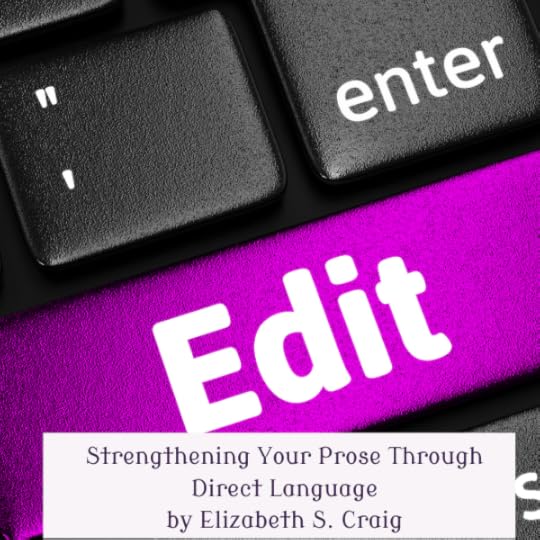Strengthening Your Prose Through Direct Language
by Elizabeth Spann Craig, @elizabethspanncraig.com
Filter words sneak into your writing and create distance between readers and your story, turning vivid scenes into secondhand reports that readers experience from the outside looking in. Here are a few ways to recognize and eliminate them.
Recognize Common Culprits
Filter words include saw, noticed, observed, watched, heard, listened, felt, experienced, wondered, thought, realized, knew, seemed, and appeared. These words insert the character’s perception between the action and the reader. Instead of showing events directly, they show characters observing events, which dilutes impact and immediacy.
Compare Direct vs. Filtered Writing
Filtered version: “Sarah noticed the door was slightly ajar and heard whispering coming from inside the room. She felt a chill run down her spine and wondered if she should investigate.” Direct version: “The door stood slightly ajar, hushed whispers seeping from inside the room. A chill ran down Sarah’s spine. Should she investigate?” The second version places readers directly in the scene.
Remove Unnecessary Perception Phrases
Beyond individual filter words, eliminate whole constructions that distance readers. “It occurred to her that the situation had become dangerous” becomes simply “The situation had become dangerous.” Trust readers to understand they’re experiencing events through your character’s perspective without constantly reminding them.
Keep Filters When They Add Meaning
Sometimes characters actively watch or deliberately listen for specific reasons. If the act of watching or listening serves your story (perhaps showing surveillance or eavesdropping) keep the filter word. Ask whether the filter adds meaning or merely creates distance between reader and action.
Test Your Scenes for Immediacy
Read passages aloud to identify filter words that slip past during editing. Strong scenes put readers directly into the action rather than watching characters observe the action. When readers forget they’re reading because they’re absorbed in the story, you’ve successfully eliminated unnecessary filters.
Removing filter words helps readers slip into your story world without constant reminders that they’re reading about someone else’s experience.
What filter words do you catch yourself overusing? I’m fond of “wondered.” :)
Identify and eliminate filter words:
Share on X
The post Strengthening Your Prose Through Direct Language appeared first on Elizabeth Spann Craig.




